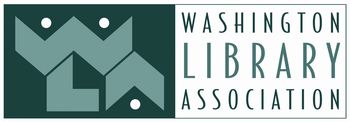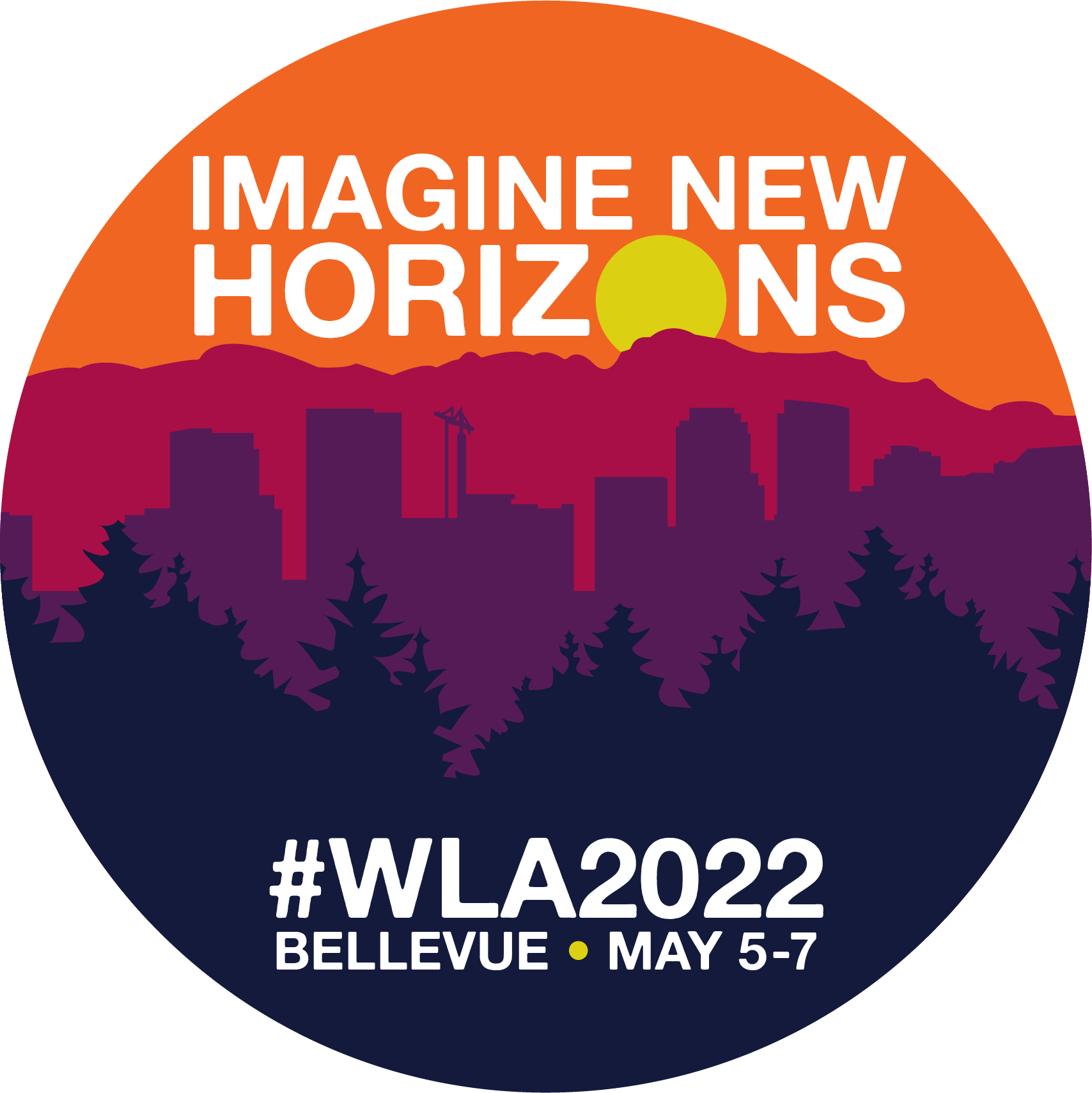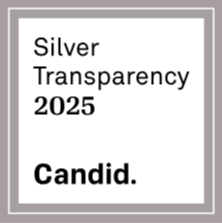2022 WLA Conference Resources
WLA Code of Conduct
Attendees at any WLA-sponsored event must adhere to the WLA Code of Conduct.
Nursing Parents
Nursing parents can visit the Registration Desk for private room access.
Verification of Conference Attendance
Do you need proof of attending the 2022 conference? Please complete this form by Wednesday, June 8 to help the WLA Office verify your attendance.
All letters of attendance will be emailed to the requester unless otherwise specified. No letters will be mailed. Please fill out one form per letter.
If you need to verify attendance for a large number of registrants, please email [email protected].
Clock Hours Instructions
If you are seeking Clock Hours for WLA 2022, here’s what you’ll need to do!
In Person Sessions
- Make sure the session you are attending is Clock Hours eligible. All Clock Hours eligible sessions are tagged as “SD Clock Hours Eligible” in the Event Schedule.
- When you enter the session at the conference, there will be a sign in sheet at the back of the room. You will need to legibly sign in for each session you attend with your printed name, signature, email address, and what time you arrived. This is very important and will serve as proof that you attended the session! We will use these sign-in sheets to issue your Clock Hours form.
- At the end of each day of sessions, you will receive an email with a link to an evaluation form for that day’s sessions. Please try to complete these evaluations as soon as you can, as they are required. The evaluation links for in-person sessions will close on Friday, May 13th at 6:00 p.m.
- If you also attend On Demand sessions, see below for instructions.
- The Washington State Library will issue you an 1125 form signed by the Washington State Library no later than May 20th, 2022. This form will have your total Clock Hours for the conference, based on the sign in sheets you filled out at the conference. On Demand sessions completed by Friday, May 13th will also be included on this form. Any On Demand sessions completed later than Friday, May 13th will be documented on a separate 1125 form at a later date (See below for instructions.)
- You are responsible for completing Section I, completing and signing Section III, and submitting your 1125 form into your E-Cert record and maintaining your own records. The Washington State Library will retain the necessary in-service records for seven calendar years. If you need to access or correct mistakes in your records, please contact [email protected].
On Demand Sessions
- Make sure the session you are attending is Clock Hours eligible. All Clock Hours eligible sessions are tagged as “SD Clock Hours Eligible” in the Event Schedule.
- You will not need to sign in for on demand sessions, as an attendance list generated by WLA’s Whova Conference platform and will be sent by WLA to the Washington State Library’s Clock Hours committee.
- If you attend On Demand sessions, you will receive an email with a link to an evaluation form for the On Demand sessions. Once you have watched all of the On Demand sessions you plan on attending, please complete this evaluation.
- Once you have completed all the On Demand sessions you plan on watching, email [email protected] and let us know that you are ready to receive your 1125 form. In this email, also include your full name, email address, and phone number.
- The Washington State Library will issue you an 1125 form signed by the Washington State Library no later than fourteen days after your email request to [email protected]. This form will have your total On Demand Clock Hours for the conference, based on the Whova platform information sent to the Washington State Library.
- You are responsible for completing Section I, completing and signing Section III, and submitting your 1125 form into your E-Cert record and maintaining your own records. The Washington State Library will retain the necessary in-service records for seven calendar years. If you need to access or correct mistakes in your records, please contact [email protected].
Making Your Case to Attend
The following tips and tricks for making your case to attend a conference are courtesy of the American Library Association.
Making the case for time off, support, and travel and expenses to attend a conference requires a solid understanding of the potential benefits to your institution, supervisor, and colleagues. And you need to be able to communicate those benefits clearly—especially if your company is experiencing tight budgets and/or reduced staff. Use the following information to help "make your case".
Steps:
- Familiarize yourself with the points in “Why you'll be more valuable to your library after the conference,” and read the quotes from your colleagues.
- Tally your potential costs, demonstrating how much you can save if you register and book travel and housing early. This sample budget worksheet might be helpful.
- Study any preliminary information about the program. Identify sessions, events, and programs that you believe can help you be more productive and efficient.
- Share any preliminary program information with your colleagues. Let those who might not be able to attend know that your attending can benefit them. Inform them of the type of information that you can bring back to help them, and which sessions you can attend on their behalf.
- Share program information with your supervisor. List the sessions and programs that you think will be of greatest benefit to your workplace.
- Review the topic-specific preconferences and institutes. Are any especially applicable to you and your workplace?
- Draft a plan listing how essential tasks will be handled while you're away. Include how, if necessary, technology can easily keep you accessible.
- Draft a plan noting that when you return to the office, you’ll share action items and fresh ideas learned at the conference (e.g., notes from speaker presentations and discussion groups, knowledgeable vendors you spoke with, best practices, contacts you made through networking, etc.) with the rest of the staff.
- Inform your supervisor that you can focus on implementing one new idea that will pay back many times over the investment of time and money spent to attend.
- Put your request in writing. Feel free to use this sample memo and sample budget worksheet. If you need more ideas about funding, check out the helpful tips and links listed in this YALSA blog post.
Resources for First-Timers
The following tips and tricks for attending your first conference are adapted from and courtesy of the American Library Association. Stand by while we adapt these tips for a virtual conference!
The Basics
- Be sure to wear your name tag to meetings and social events—but not on the street. Always carry snacks, drinks, and business cards.
- Reference the maps provided in the conference program book to find out how best to get around town, the hotel, and exhibit floor.
- Explore your interests—or—learn something new.
- Take notes during, or just after sessions, while the session content is still fresh in your mind.
- Take the opportunity to meet people. Pass up listening to music, social media, etc., when you could be networking.
- Be sure to note travel time when scheduling your conference activities. Have alternate events in mind in case you don’t have time to travel from your hotel to the event, the program you intended to attend is at capacity, the event is not what you expected, or cancelled. With so many people onsite, it's ok to arrive late or leave early if necessary!
- Allocate enough time for the Exhibit floor; there's lots to see! But you might not want to pick up all the “swag” you see - it gets heavy.
Network & Get Involved
- You are not alone! Ask questions and learn from thousands of librarians and related professionals from a myriad of backgrounds who are attending the conference with you. These individuals may currently, or in the past have, faced the same challenges as you. If so, they'll have acquired the solutions you may need. Some may also have the position you aspire to, so seek them out as a potential collaborator or mentor.
- See a panel guest or facilitator you respect. Don't hesitate to introduce yourself - exchange business cards or contact information.
- If you want to get involved in the association, a specific division, round table, and or committee, attend meetings and introduce yourself to the chairperson, director, etc. Note that it’s acceptable at times to arrive late or leave early committee meetings if necessary.
Stay Connected, Apply & Share the Wealth
- Make and keep connections! Make a note on the back of business cards you receive to trigger your memory of the exchange. Send follow-up email messages to the contacts and presenters you meet.
- Apply your experiences. Take time to review the notes and materials you collect as soon as possible when you return home, and how you plan to use the information in your position/library.
- Share and discuss the new ideas you learned with your co-workers.
Additional Resources
How to Conference Like a Champ
A helpful and tip-filled blog post by ALSC member Amanda Yother after her first ALA conference.
Ten Conference Tips for a First-Timer from Leigh Milligan
Based on her experience at 2014 ALA Midwinter Meeting, Leigh Milligan wrote an article for INALJ (the I Need a Library Job eResource center) for first-time attendees like her. Read the full article.
|


